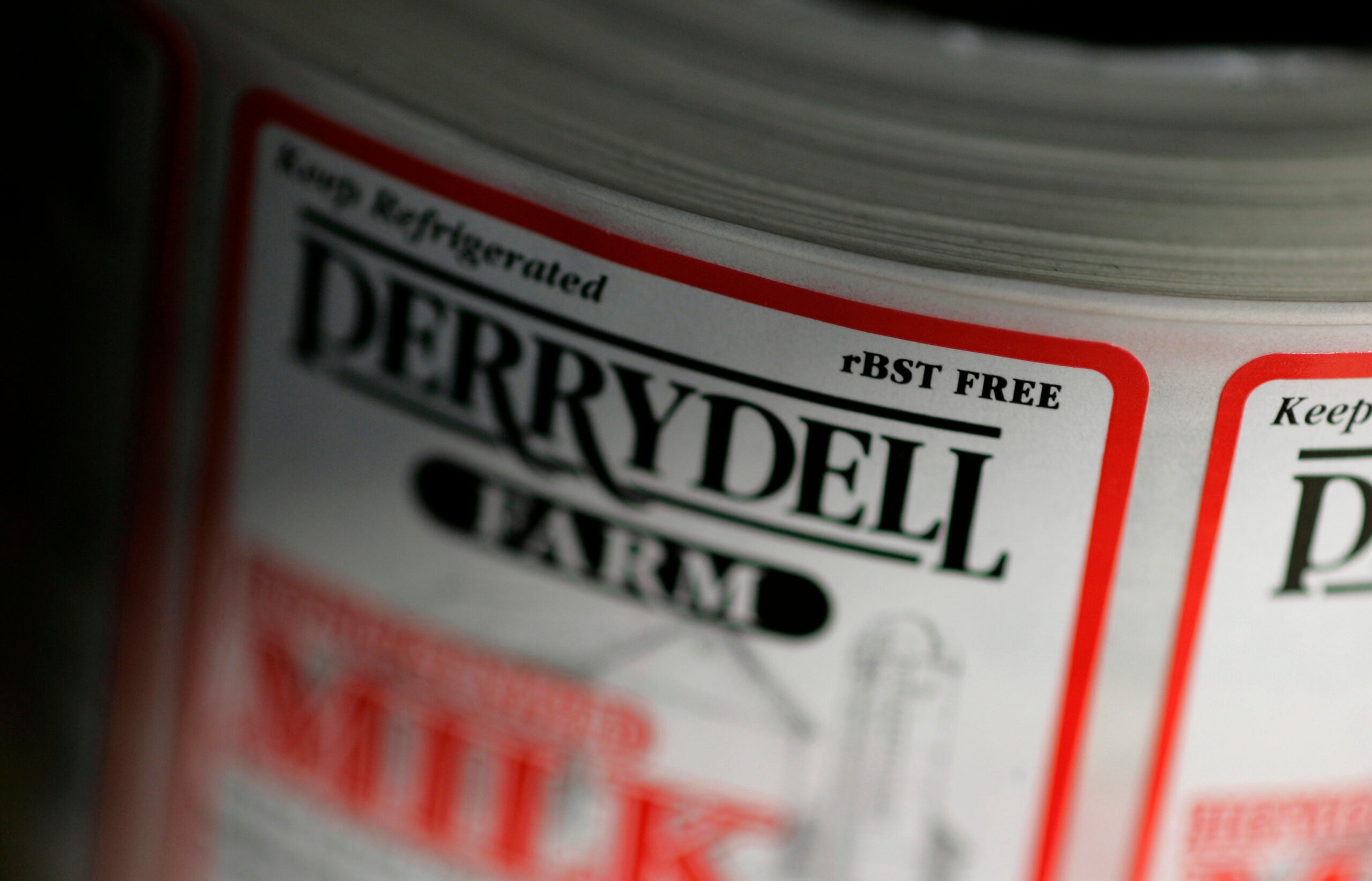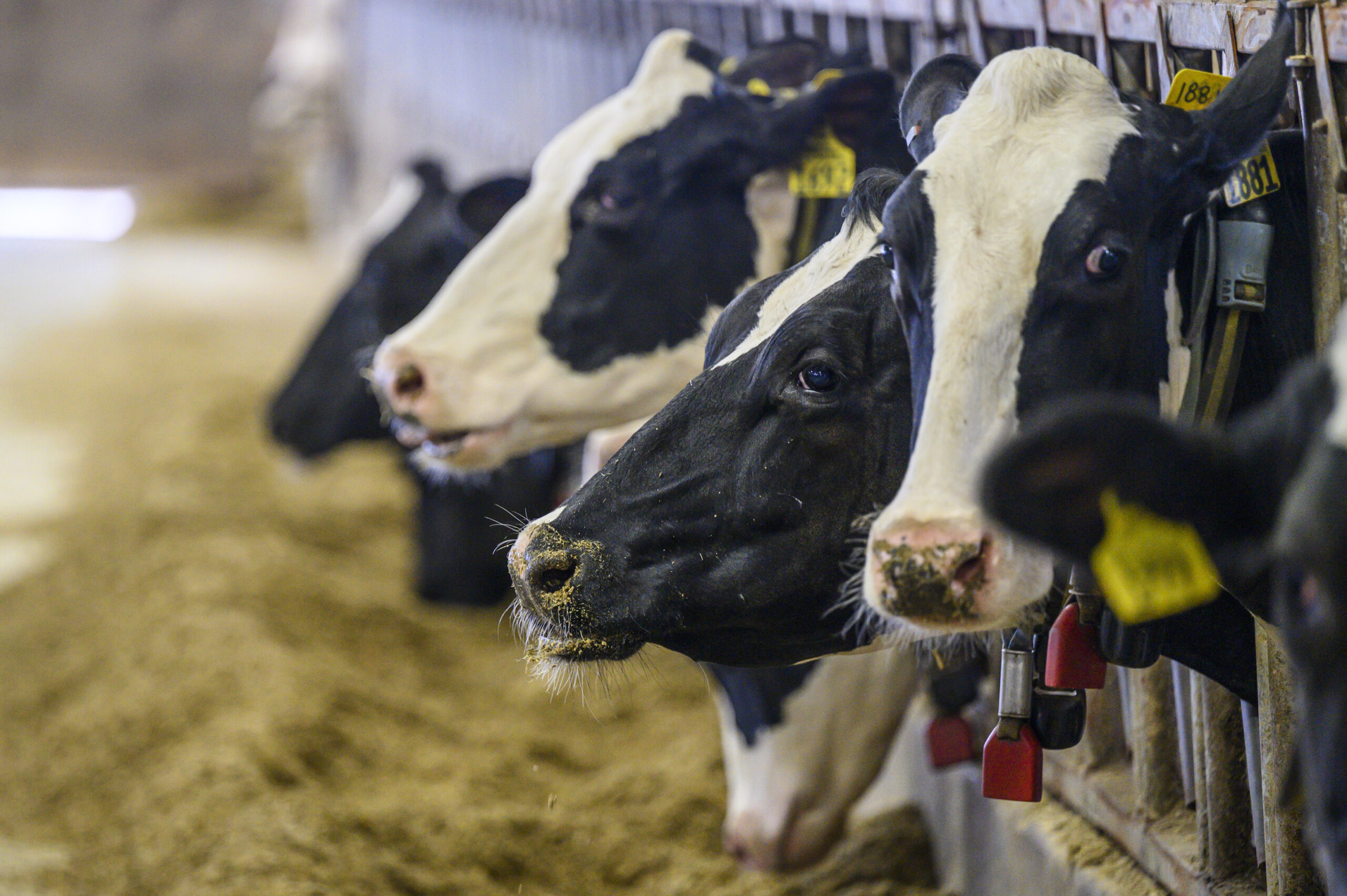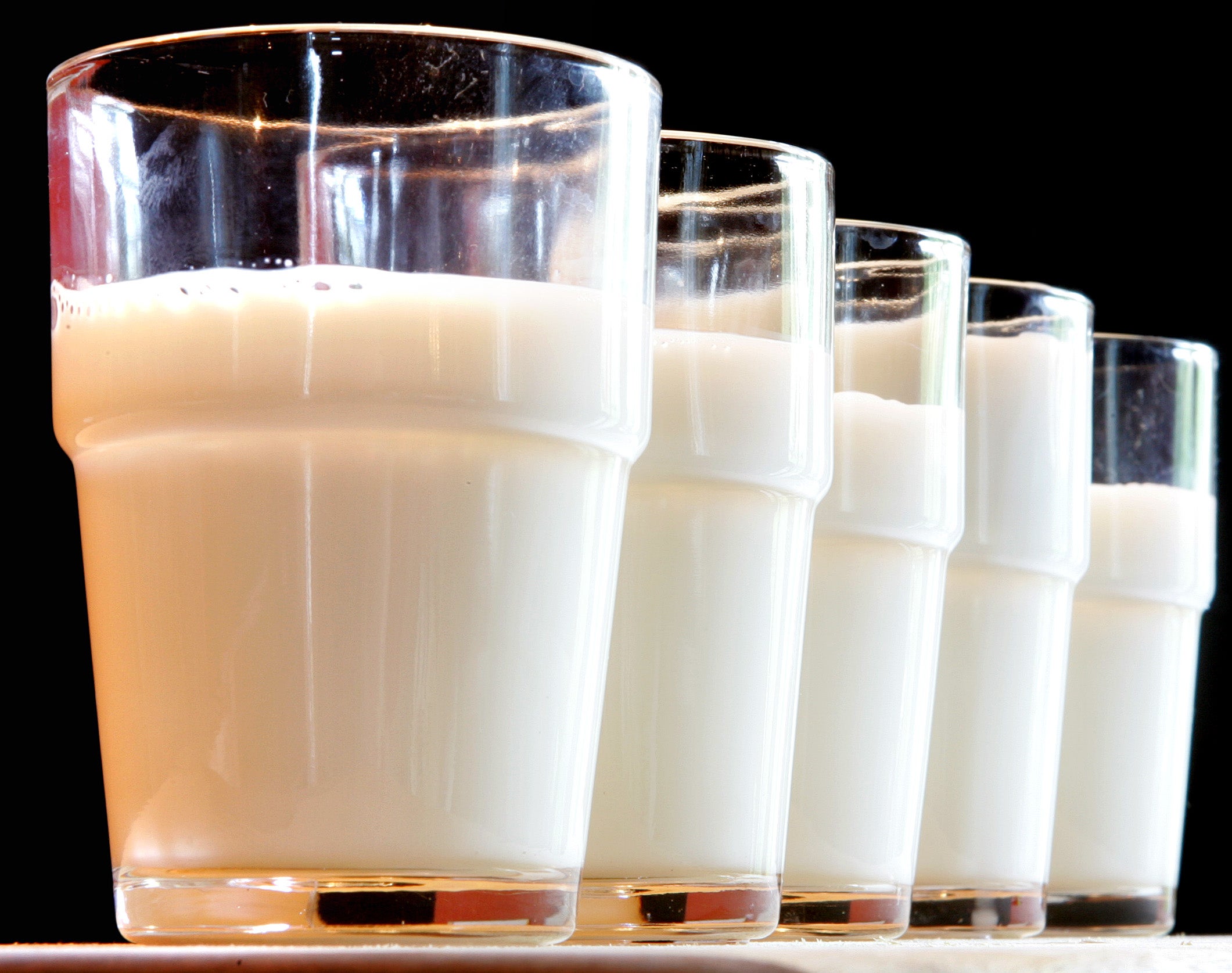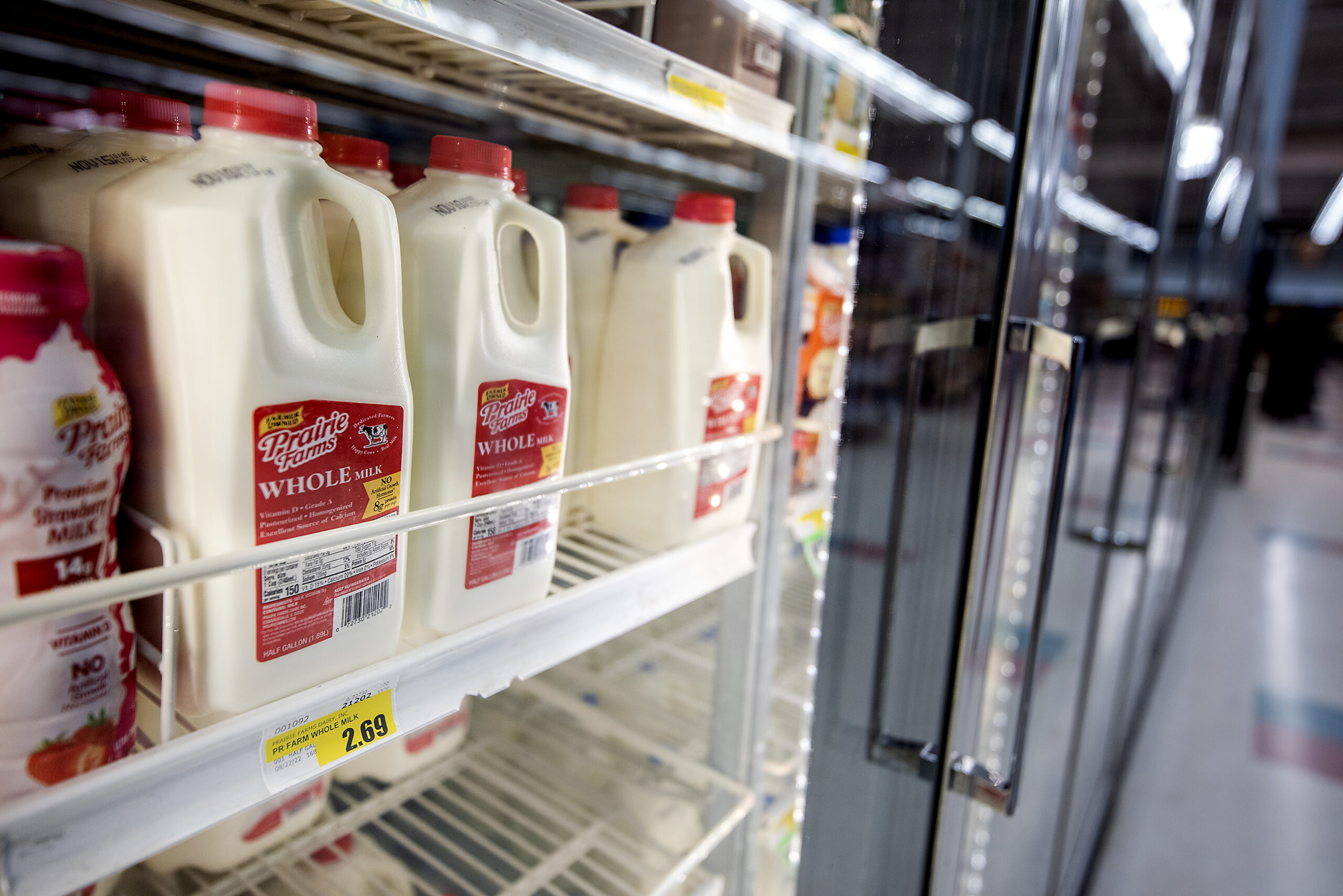A majority of Wisconsin’s dairy processors won’t accept milk from cows treated with rBST by the end of the year.
Recombinant bovine somatotropin, or rBST, is a growth hormone used by some farmers to prolong a cow’s lactation cycle. But consumer concerns about the hormone have lead more processors to require dairy farmers not to use the treatment.
John Umhoefer, executive director of the Wisconsin Cheese Makers Association, estimates close to 90 percent of the state’s milk will be rBST free in 2018.
News with a little more humanity
WPR’s “Wisconsin Today” newsletter keeps you connected to the state you love without feeling overwhelmed. No paywall. No agenda. No corporate filter.
He said the shift away from the growth hormone has accelerated in the last year, as more manufacturers started charging consumers more for milk that didn’t contain the hormone.
“After awhile, it starts to have a domino effect because you see the marketplace seeing that opportunity and other people realize they should follow the opportunity,” Umhoefer said.
Foremost Farms USA is one of the Wisconsin cooperatives switching to rBST free milk this year.
“The move to making our milk supply rBST free really was in response to customers, particularly customers that buy ingredients for infant formula who are looking for rBST free whey supplies for their products,” said Joan Behr, communications director for Foremost Farms.
Behr said the dairy industry as a whole has to respond to customer demand, regardless of how producers feel about the use of rBST.
“For dairy farmers to be competitive in the global marketplace, they have to respond to what their buyers are requesting of them and those decisions are business decisions that allow dairy producers to have viable long term markets,” Behr said.
But as more processors make the switch, Umhoefer said manufacturers won’t be able to charge a premium for their products and farmers won’t receive a bonus for not using the hormone.
“What it’s going to become is just ordinary milk, and so I think there may not be an impact for the consumer,” Umhoefer said.
Wisconsin Public Radio, © Copyright 2025, Board of Regents of the University of Wisconsin System and Wisconsin Educational Communications Board.






